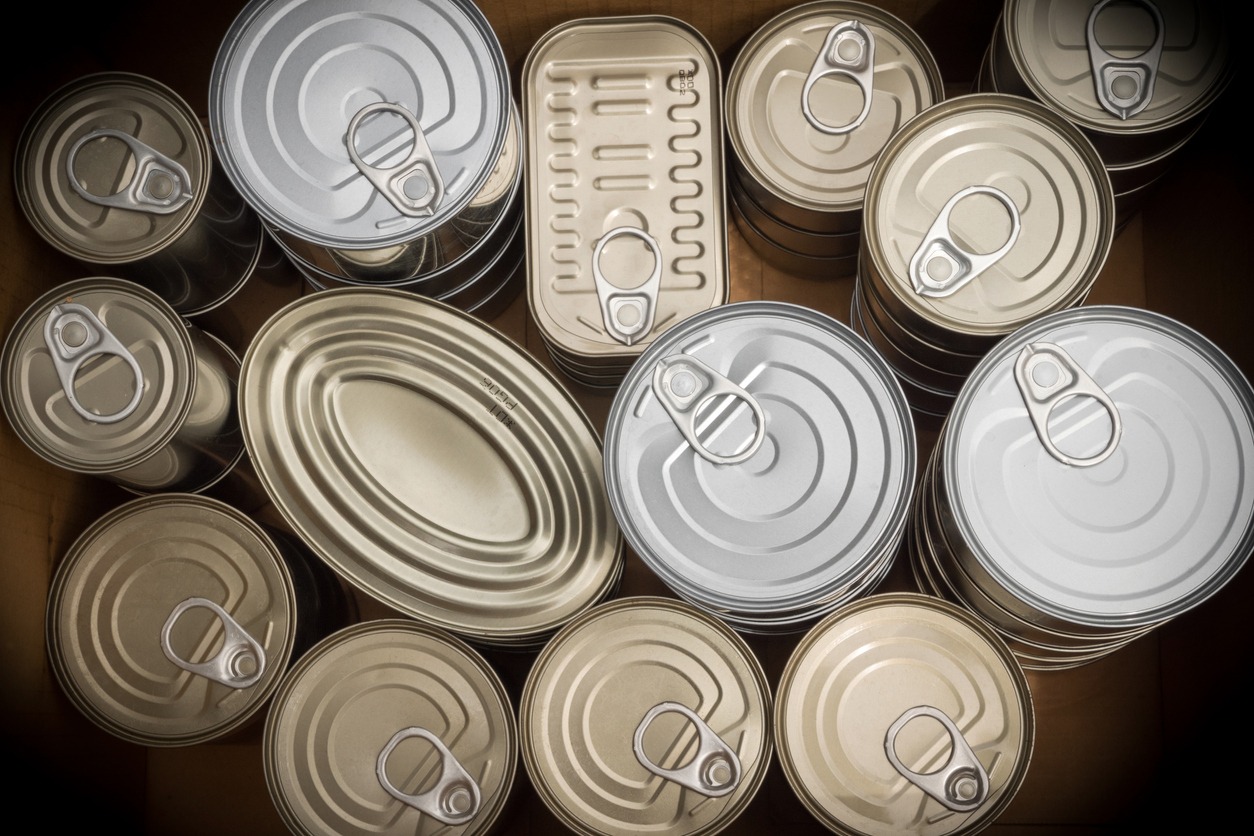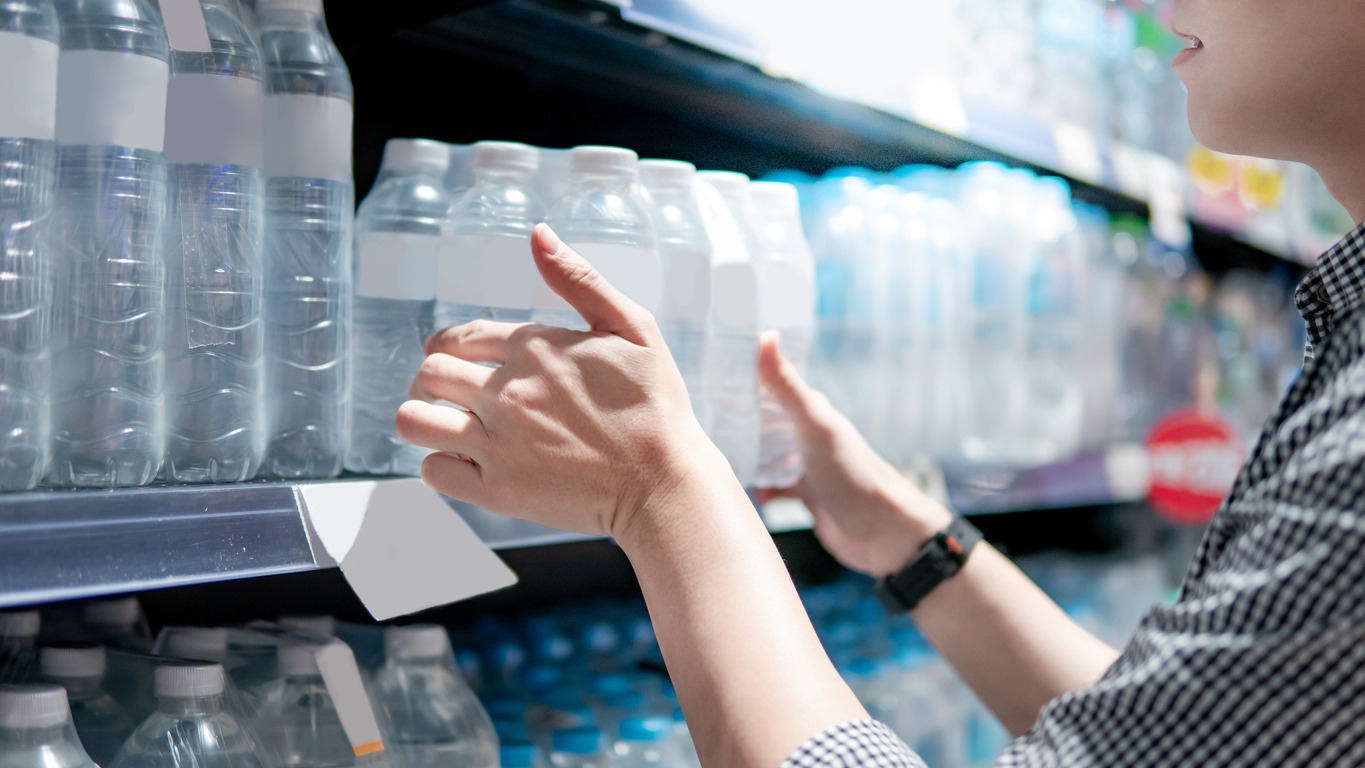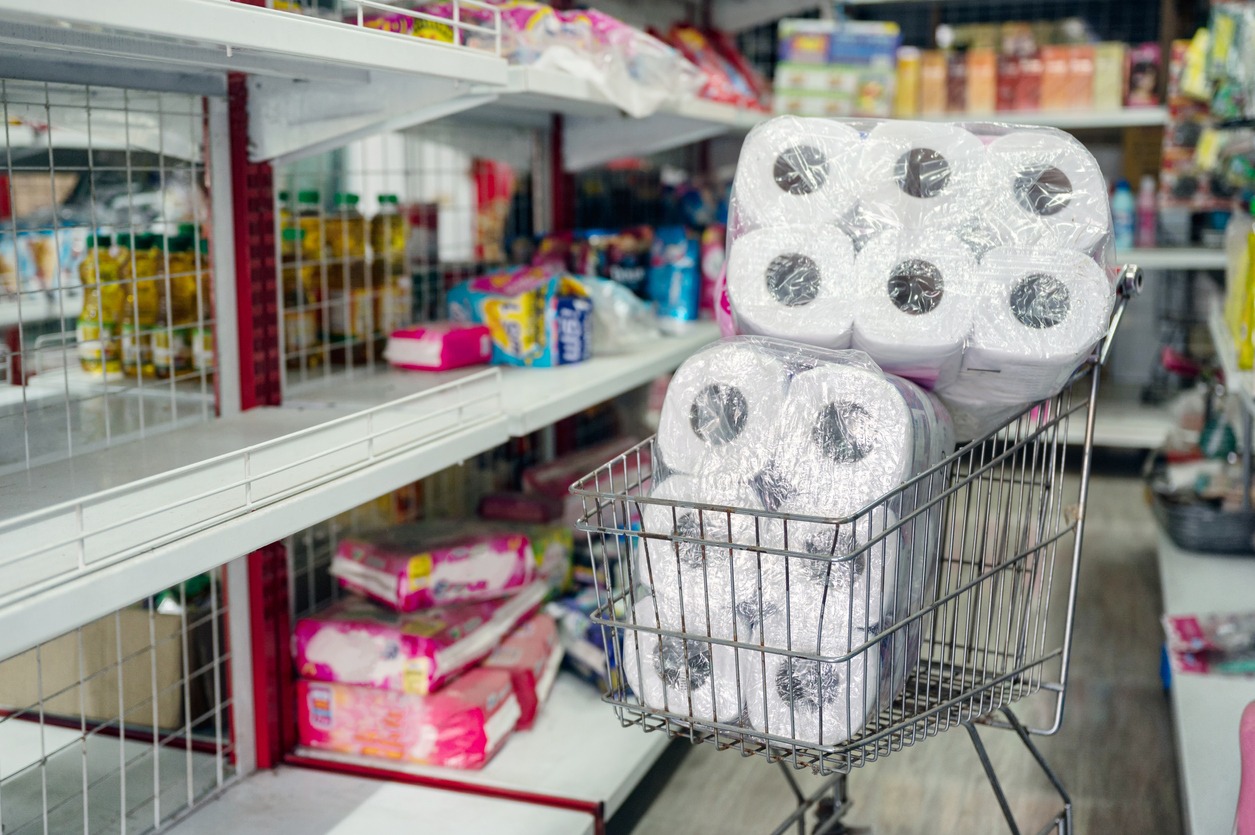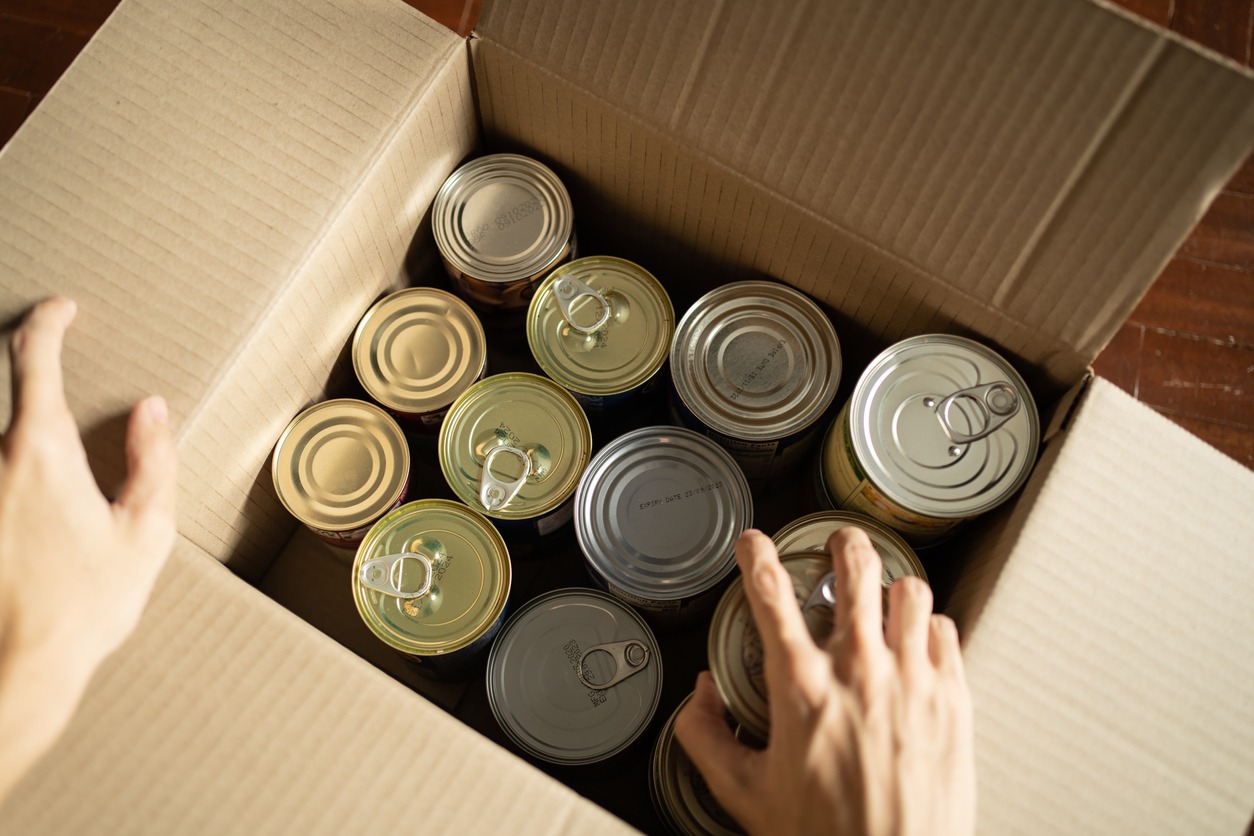During our lifetimes, we all hope that nothing catastrophic will occur. On the other hand, we shouldn’t lose sight of the fact that our era represents a mere blip in the grand scheme of things that have transpired over the course of the past few centuries. In addition, there will almost certainly be additional significant occurrences during our lifetimes or our children’s lifetimes.
The fact of the matter is that every one of us needs to be prepared. There is nothing that can break your heart more than the realization that you or your loved ones are not ready for the worst that life has to offer, whether it be the imposition of martial law, a cataclysmic natural event, an EMP (electromagnetic pulse), a solar flare that could send us back to the 19th century, or another type of disaster. There will be a significant loss of life. If you haven’t made any preparations, you won’t have anything valuable to barter with other people who are trying to stay alive.
If something catastrophic were to happen, you should be ready for it by beginning or adding to your stockpile some of the most likely items that could be used as currency. This article contains a list of the top 25 barter items you should keep in mind when preparing your stashes.
An Overview of Bartering’s History
Trading goods and services with one another date back to the beginning of time. People have always traded goods with one another in the past, and in the present day, and will continue to do so in the future. This practice will never stop. People used to engage in the practice of bartering when they had an extra cow, crops, or some personal items. Cocoa beans and other commodities, including some others, were eventually used as currency.
After that, the first coins and money in the form we are familiar with today appeared. In today’s society, it is common practice for members of the same family as well as friends to trade goods with one another without even being aware that they are engaging in barter.
Bartering: How Does It Work?
Bartering was the primary method by which people conducted business before the invention of money. A person would generally go to the market to make a trade of some kind, such as exchanging a dozen eggs for a bottle of expensive wine or grains for some freshly made cheese. When both parties reached an agreement that the terms of the barter were satisfactory, the transaction was regarded as complete.
The practice of bartering is still carried out in some parts of the world even though it is much less common than it once was. People now regularly trade modern conveniences such as smartphones, kitchen utensils, and even cars. This is not ancient Greece, after all. When the SHTF, bartering will start to gain popularity again, and by that time, society will be much more desperate.
Why Bartering Should Be Part of Your SHTF Plan
While you are working on building your stockpile, you should also think about hiding items that can be used as currency. You won’t only have enough to keep your family warm and fed, but you’ll also have extra money left over to trade for whatever goods or services you desire. Think of it as a form of insurance that will assist you in surviving times when money isn’t worth very much. You don’t have to wait for things to get worse before you start making offers and deals. It would be even more beneficial for you to practice it now so that you can become an expert negotiator by the time SHTF occurs.
Stockpiling Items for SHTF Bartering
If you want to not only survive the next major disaster but also thrive in the aftermath of it, you will need to start planning right now.
1. Water
On this list, the item most valuable for trading is going to be water. The typical lifespan of a human being without water is between three and seven days. Each individual’s limit will be determined by a combination of climate, physical fitness, and other factors, but that is not the topic I want to discuss. The key point to take away from this is the realization that every single human being will, at some point, require water.
Because of this, it is currently our most valuable commodity to trade for the following reasons: Desperate People will offer you almost anything in exchange for just one swallow of their drug. Be sure to leave plenty in your stocks whether you decide to barter sips, ounces, cups, or full bottles; otherwise, you may find yourself on the wrong end of the bartering table.
However, you shouldn’t restrict yourself to just water by itself. Anything that helps locate water, keep it contained or purify it will also be extremely popular. You can trade desalination kits, filters, and tablets to purify water, and even instructions on where to find water if you have the right kind of bartering skills.
2. Food
Food is the second most important item that you can stockpile for bartering. Food is essential to the survival of every human being, just like water is. The most significant problem that will arise with food is going to be spoilage; therefore, you shouldn’t spend an excessive amount of time thinking about fresh greens and gallons of milk. Your attention should be directed toward high-calorie, processed foods that have a long shelf life. Products that have been dehydrated, freeze-dried, canned, or smoked will command a higher price.
Make sure you have plenty of space for protein powder, protein bars, and MREs. You can try to grow fresh foods in your garden if you have the room and the ability to do so. If you grow things that last the longest in storage and have multiple applications, like carrots, potatoes, and wheat, you could end up being the richest person in the wasteland. Instead of trading your precious fruits and vegetables, you might want to think about saving and trading seeds.
Do you have space for some small livestock? If you have the room, chickens are an excellent option to consider. They are hardy, surprising in their loyalty, excellent composters, and foragers, and will be of assistance to you in your garden. When they finish laying eggs, put the chickens in a stew pot, and you have yourself a meal. Both eggs and chicks are extremely valuable commodities for use in trade.
3. Hygiene Supplies
When a disaster strikes and running water and clean bathrooms become a thing of the past, having hygiene products on hand is not just a nice thing to have, it is necessary. Try to find things that won’t go bad after being stored for a long period. There will be a high demand for wet wipes and baby wipes; however, these products do not last as long when stored as dry paper goods, so you will want to barter for them sooner rather than later.
4. Medical Equipment
Because humans are soft and prone to injury, it is only a matter of time before someone will require antibiotic ointments, burn salve, or an aspirin to treat that pesky headache brought on by dehydration. Try to avoid concentrating solely on non-perishable or consumable medical supplies. Bandages, gauze pads, medical tape, alcohol wipes, and examination gloves should all have their own designated space in your cache.
5. Skills
It’s not always necessary to trade physical goods when you want to barter. What would happen if your neighbor is expecting a child and your wife is an experienced midwife? That is a very impressive ability! You may be an accomplished hunter or have a deep knowledge of plants that have curative properties. You can barter your skills in exchange for the things you require. You could, for instance, show your next-door neighbor how to identify native, wild plants in the area as well as how to make medicinal use of those plants. Your neighbor will help you build a fence around your livestock if you do the same for him.
6. Canned Goods
When you think of things that you could trade, canned food is probably one of the first things that come to mind. We need food. However, over time, food will become rancid and lose its nutritional value. Even food that has been home-canned having a long shelf life and can be stored without refrigeration for years. It is beneficial for you to have a large stock because it adds versatility and flexibility to the meals that you prepare.
7. Light or Heat Sources
Candles, lanterns, and flashlights are three items that non-preppers never seem to have enough of stored away. The same goes for batteries and other items that can start fires.
8. Women’s Products
Although feminine products might not appear to be “universally useful,” there is no question that demand for them will be extremely high. Consider the neighbor who lives down the street and has a family consisting of his wife and five daughters. You can be sure that he will be put under pressure to ensure that his family has access to feminine hygiene products for the longest amount of time possible. Even though most female survivalists aren’t the dainty type, that doesn’t mean that we don’t care about being neat and tidy.
The fact that sanitary pads can also function as effective bandages in an emergency ensures that they will always be in high demand. Tampons won’t be as useful given that not all women will use these, but it certainly won’t hurt to keep a few boxes in the stash just in case. They don’t take up much space, and you can keep them for an indefinite amount of time. They can even be crammed into a small area without negatively impacting their operational capabilities in any way.
9. Baby Supplies
It should not come as a surprise that infants have extensive care requirements. Items such as pacifiers, baby bottles, formula, baby wipes, diaper rash ointment, and baby wipes are essential for new parents. In an SHTF scenario, these kinds of barter items would be the equivalent of winning the lottery for parents.
10. Tools
Your stockpile of items to barter with ought to include various kinds of tools. In the aftermath of the collapse, the world will require reconstruction. The use of common hand tools, screws, nails, and adhesives will make that a lot simpler to accomplish. Don’t bother with the electric tools, not even the ones that run on batteries. People won’t want to use a cordless drill because it wastes battery power when they can just use a regular screwdriver instead.
11. Shoes
On the other hand, shoes get worn out, and people need to wear shoes. Even if they were well maintained, shoes eventually wear out and need to be replaced. Everyone, including children and adults, will require footwear. If you have children, you probably have a lot of extra clothes because they grow so quickly. When you have extras available, people will eventually want to trade them from you.
12. Alcohol
Alcohol isn’t just for getting tipsy. A lot of people who are prepping have a nice supply of high-quality liquor stashed away for drinking, wound care, as a painkiller, and even as fuel.
13. Batteries
Most people don’t give this much thought, but it would be in their best interest to invest in rechargeable batteries that can be charged using solar energy. There will be a high demand for compact battery packs that come in fours. Do stockpile batteries of all sizes for purposes of bartering, paying particular attention to those that are typically found in flashlights and handheld radios.
14. Seeds
Good fortune is coming your way if you are a gardener. In preparation for this, you should initiate the cultivation of your heirloom garden right away. You will need a garden to survive after society has completely broken down, but there will still be nurseries and stores where you can purchase seeds. Even if your space is limited, you should be able to cultivate a small garden to collect seeds from the plants you require. Then, you should try to trade those seeds for things that you require. Because of this, those seeds will be in high demand, which will increase their value.
15. Items for Entertainment
You should not count on having as much access to various forms of entertainment. When all of the mobile devices finally give up the ghost, we won’t have access to the internet or the ability to send or receive emails. The appearance of a deck of cards or a good book will all of a sudden take on a more alluring quality. Paper pads, both blank and lined, pencils, and board games are all items that can fetch high prices in a barter exchange. Just make sure that you keep these things in watertight containers.
16. Spices, Sugar, and Salt
In the future, sugar, salt, and spices will be considered luxuries. People will beg for something to spice up their meals as food supplies run out and they are forced to survive on foods that are tasteless and dry because there are no other options. Sugar and salt can be preserved for an infinite amount of time if they are kept in airtight and watertight containers respectively. Even when they begin to lose flavor and freshness, people won’t care about herbs and spices because their shelf life is typically shorter than that of other foods. Ingredients such as chili powder, granulated garlic, and mixed Italian seasonings are all excellent options.
17. Polythene Bags
One of the most convenient things to store in a stockpile is plastic bags and sheeting. They take up very little space but have a wide variety of applications in precarious situations, such as impromptu shelters, sanitary waste disposal, easy water collection, and many other uses.
18. Clothing
Many individuals grossly underestimate the value of their clothing. I do not want you to avoid donating your old clothing; however, I do want to encourage you to keep a few key items in your stash for use as bartering items if SHTF occurs. People will almost always require outerwear such as coats, jeans, socks, and gloves, but this will become especially important if the power grid goes down and it begins to get chilly outside.
19. Flashlights
However, even though you will need to have batteries on hand, people will still be interested in purchasing batteries. A LED light is extremely useful when you’re out in the woods. There is an abundance of small flashlights that can run on a single battery, and there are even some that can be hand-cranked, which eliminates the need for you to worry about the batteries in your flashlight running out.
20. Cigarettes
Even though you don’t smoke, you should at least acknowledge the significance of cigarettes. People who are addicted to cigarettes will do anything to get their hands on a pack of cigarettes. Nonetheless, it is expensive to stock up on them. You also have the choice of learning how to roll your own and purchasing the necessary supplies independently.
21. Fire Starters
Since matches are so reasonably priced, it is possible to acquire a substantial supply of them. Fire is essential to human beings’ ability to live. You can even give these away to save lives, just like you can with water filtration systems. Lighters are an excellent option, particularly if you have the impression that you are unable to properly store the matches. Matches are required to be stored in a watertight container.
22. Sugar
Sugar is a valuable commodity. One day, people will want to make sweet treats or sweeten their coffee, and these activities will become popular. However, for sugar to remain usable for an extended period, it must be stored appropriately. Grow sugar beets and stevia, and stockpile sugar to trade as a morale booster item; this will be in particularly high demand during the rebuilding stage when survivors are settling into the new normal.
23. Fuel
There will be a significant increase in demand for gasoline, diesel, propane, motor oil, and kerosene. You have a responsibility to check that you have sufficient supplies stashed away for your family. These components are required for the operation of electrical appliances, as well as generators, lamps, and motor vehicles.
To justify giving up even a small portion of your fuel supply, the situation must be extremely urgent. But if you buy more fuel than you think you will need, including gasoline, diesel fuel, two-cycle oil, kerosene, and propane, along with stabilizer, you will have a commodity that is truly worth its weight in gold. It would also be well worth your time and money to learn how to make your bio-diesel fuel and to keep a supply of the materials needed to make it. Both of these endeavors require an investment of both time and money.
24. Bleach
In unsanitary conditions, diseases and infections can quickly spread throughout a population. Bleach gives people the ability to disinfect water, clean their clothes, and maintain a clean-living environment. You could obtain a variety of different items by trading bottles. Because bleach does not have a very long shelf life, it is highly unlikely that you will want to trade it in during an extended emergency.
25. Firewood
Fire is essential for keeping warm, regardless of whether one lives in the city or the country. The possession of a sizeable inventory of firewood that can be bartered for is an excellent thing to trade. It’s possible that some people either don’t have the tools or don’t have the physical ability to chop wood.
Safe Bartering Rules
When you put items up for trade, you put yourself in danger and draw attention to yourself by putting a target on your back. When you offer an excessive number of high-quality items regularly, word will get around. You will quickly become the most popular person in the neighborhood, and I don’t just mean that people will send you invitations to all of their tea parties. If you keep these rules for SHTF bartering in mind, you will be much safer when the SHTF event occurs.
1. Never make a public display of your wealth. If everyone knows that you always have the best stuff, they will begin to see you as an enticing target because of this.
2.Every time, you should try to barter in a different location. This will help conceal your location and prevent looters and bandits from predicting your movements and preventing you from being attacked.
3. Make sure to change up the items you sell each time. People will come looking for you when they are in extreme need of that thing, and it is possible that they will not be willing to engage in bargaining with you.
4. Try to remain unnoticed. You do not want people to think that you are concealing more information than you are letting on about. Be humble, and make sure your actions reflect that. Never brag, even subtly, and never threaten.
5. Never let anyone know where your secret stash is hidden. Not even with your dearest and most reliable companion. It’s possible that they can be trusted, but the desperate person who overhears them talking about your stash in passing might not be.
When looking for the best items to barter for, keep in mind that no one list is ideal for everyone. Consider your geographical location, the foods you prefer, any preexisting medical conditions, as well as the skills you already possess. Take small steps. Think long and hard about which types of food and skills would be beneficial to store away in case of an emergency. In the event of an emergency, you might need all of them in addition to other things.



